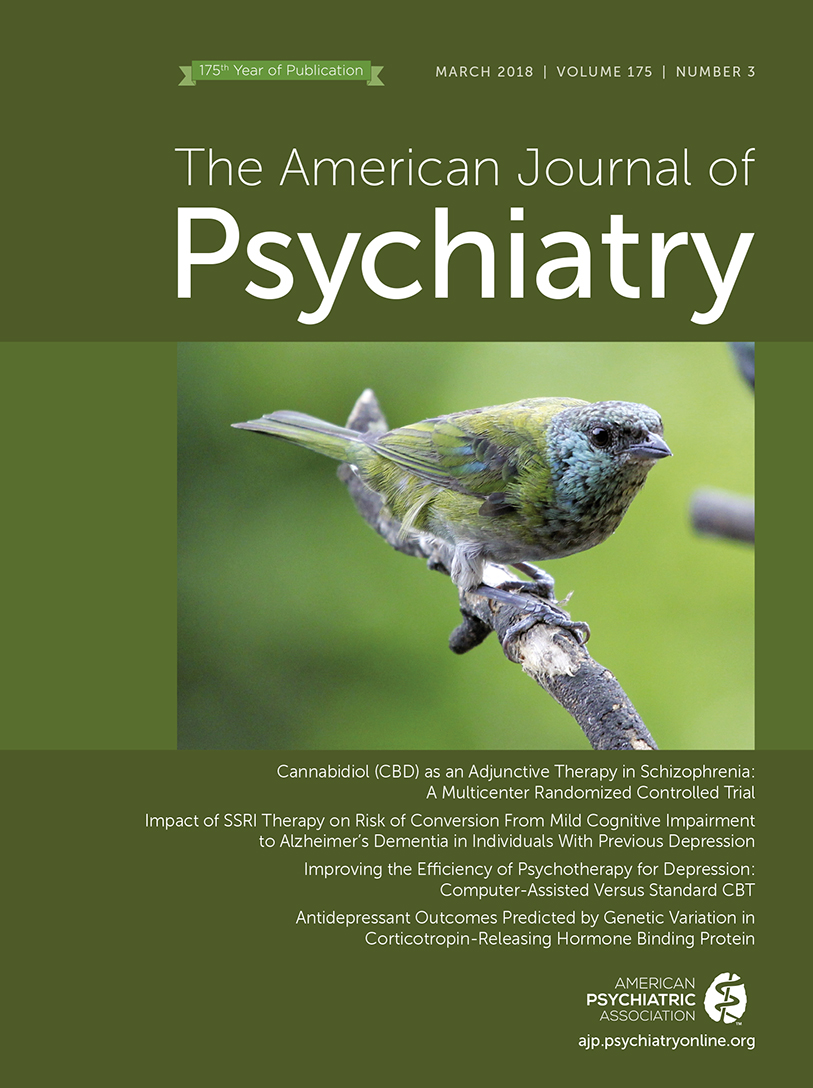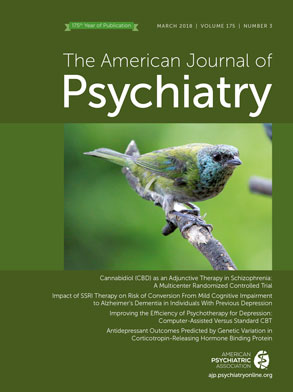T
o the E
ditor: We appreciate the opportunity to respond to the concerns raised by Theriault and Schlesinger because they reflect common public perceptions concerning medical marijuana and its potential to combat the opioid epidemic. The authors are correct that our recent longitudinal epidemiological analysis concerned associations between the use of recreational rather than medical marijuana and the development of opioid use disorder. However, users of medical and recreational marijuana are not as distinct as the authors assume. According to the 2013–2014 National Survey on Drug Use and Health (N=96,100), more than a third of medical marijuana users used recreational marijuana in the past year (
1). In a study from Washington state, medical (N=131) and recreational (N=525) marijuana users had similar mean drug use scores on the Addiction Severity Index (medical=0.14 [SD=0.09], compared with recreational=0.13 [SD=0.11]), and similar percentages of users reported depression (64% compared with 62%), violent behavior (14% compared with 15%), and hallucinations (8% compared with 9%), although recent medical problems were more common in the medical marijuana group than in the recreational marijuana group (76% compared with 51%) (
2). In a second study, adults with a history of medical marijuana use were similar to nonmedical marijuana users except that medical marijuana users were more likely to have used cocaine (
3).
The extent to which medical cannabinoids can effectively reduce chronic pain deserves further study. At present, empirical support remains modest. In a meta-analysis of eight placebo-controlled studies of cannabinoids for pain, five studies failed to separate from placebo, and the overall effect on pain improvement across the eight studies fell just below statistical significance (odds ratio=1.41, 95% CI=0.99–2.00) (
4). By contrast, there is stronger evidence supporting the effectiveness of several nonpharmacological therapies, such as exercise, multidisciplinary rehabilitation, and acupuncture, for low back pain (
5), the leading source of worldwide disability. We further urge caution against overinterpreting results from ecological studies, which temporally tie medical marijuana legislation to declining opioid mortality, because they do not include information on whether individuals who use marijuana alter their risk of developing opioid use disorder.
Much remains to be learned about the complex relationships between cannabis and opioid use and how these interactions vary by patient characteristics and cannabinoid formulation. In the absence of prospective clinical evidence demonstrating protective effects, however, there is currently little medical justification for authorizing medical cannabis to lower nonmedical opioid use.

